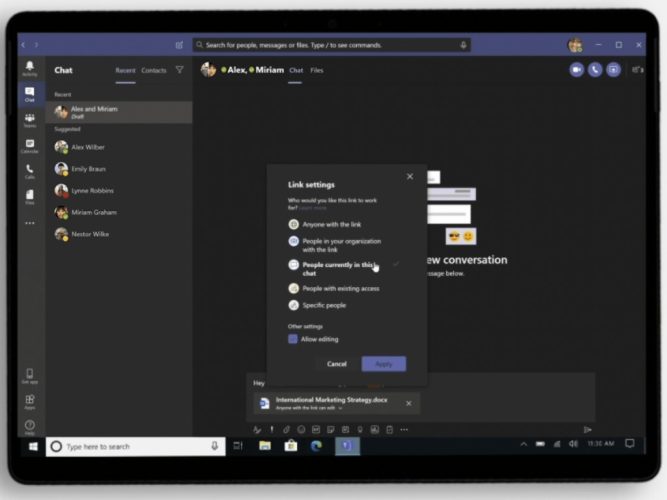New file sharing experience is now rolling out in Microsoft Teams
2 min. read
Published on
Read our disclosure page to find out how can you help Windows Report sustain the editorial team Read more

Microsoft Teams now has a new file sharing experience that’s currently available across OneDrive, Outlook, and Office. According to the Microsoft 365 Admin center, the feature is rolling out now, and it should be generally available by the end of November.
As a recall, the new file sharing experience was initially announced in July 2020. The company began rolling out this feature in August before pausing it to make some additional code changes. With the new file sharing experience, Microsoft Teams now gives users the option to create different sharing links while composing a private chat or starting a channel conversation.
The link allows users to specify who can access the file and configure the appropriate permission (edit or read-only) directly in the chatbox. When users share a file from within Teams, they will have the option to create a sharable link which will give access to one of the following audiences; Anyone, People in their organization, People with existing access, or Specific people, including those in a 1:1 chat, group chat, or channels.
When the chat participant uploads a file, it is automatically saved in the Teams chat files folder in their OneDrive for Business account. To be clear, all the chat participants will have view-only access to the newly uploaded file. The sender will have to manually add people to the permissions list who join the chat later.
This change is a part of Microsoft’s effort to better streamline the file-sharing process in Teams. In other words, Office 365 now has a consistent file sharing experience across all its major apps. Just keep in mind that if external sharing is disabled within SharePoint, it’ll be automatically disabled within Microsoft Teams as well.









